(Part 3) Top products from r/Carpentry
We found 21 product mentions on r/Carpentry. We ranked the 168 resulting products by number of redditors who mentioned them. Here are the products ranked 41-60. You can also go back to the previous section.
41. The 7 Habits of Highly Effective People: Powerful Lessons in Personal Change
Sentiment score: 1
Number of reviews: 1
The 7 Habits of Highly Effective People: Powerful Lessons in Personal Change
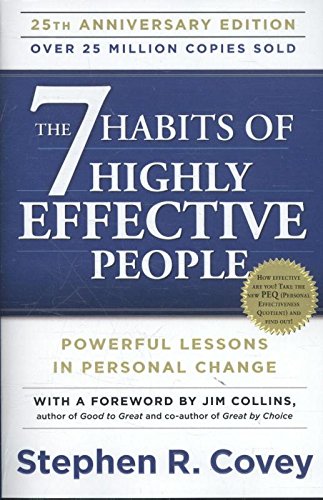 Show Reddit reviews
Show Reddit reviews42. The Very Efficient Carpenter: Basic Framing for Residential Construction (For Pros / By Pros)
Sentiment score: 1
Number of reviews: 1
 Show Reddit reviews
Show Reddit reviews43. Running a Successful Construction Company (For Pros, by Pros)
Sentiment score: 1
Number of reviews: 1
ISBN13: 9781561585304Condition: NewNotes: BRAND NEW FROM PUBLISHER! 100% Satisfaction Guarantee. Tracking provided on most orders. Buy with Confidence! Millions of books sold!
 Show Reddit reviews
Show Reddit reviews44. Building a Shed (Taunton's Build Like a Pro)
Sentiment score: 1
Number of reviews: 1
 Show Reddit reviews
Show Reddit reviews45. Illustrated Cabinetmaking: How to Design and Construct Furniture That Works (Fox Chapel Publishing) Over 1300 Drawings & Diagrams for Drawers, Tables, Beds, Bookcases, Cabinets, Joints & Subassemblies
Sentiment score: 0
Number of reviews: 1
Illustrated Cabinetmaking How to Design and Construct Furniture That Works
 Show Reddit reviews
Show Reddit reviews46. Markup & Profit: A Contractor's Guide
Sentiment score: 1
Number of reviews: 1
Used Book in Good Condition
 Show Reddit reviews
Show Reddit reviews47. CLC Custom Leathercraft 5605 Professional Carpenters Combo Tool Belt, Black, 18 Pocket
Sentiment score: 0
Number of reviews: 1
18 POCKET TOOL BELT: This CLC tool belt has 18 pockets, sleeves and holders provide ample storage for nails and tools.TOTALLY VERSATILE TOOL BELT: All parts on this Custom Leathercraft tool belt are removable and interchangeable.EASY CARRY HANDLE DESIGN: The handle on this tool belt provides simple ...
 Show Reddit reviews
Show Reddit reviews48. Graphic Guide to Frame Construction: Third Edition, Revised and Updated (For Pros By Pros)
Sentiment score: 1
Number of reviews: 1
 Show Reddit reviews
Show Reddit reviews49. The Visual Handbook of Building and Remodeling, 3rd Edition
Sentiment score: 1
Number of reviews: 1
Used Book in Good Condition
 Show Reddit reviews
Show Reddit reviews51. Swedish Carving Techniques (Fine Woodworking)
Sentiment score: 1
Number of reviews: 1
Taunton Press
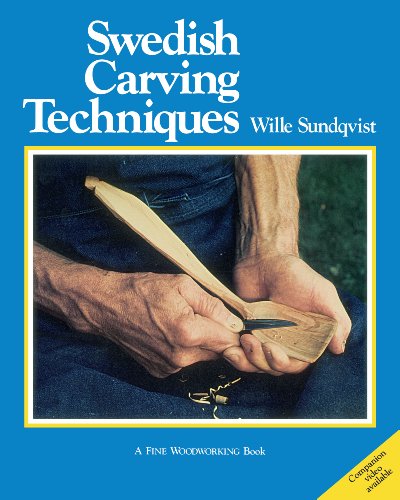 Show Reddit reviews
Show Reddit reviews52. Graphic Guide to Frame Construction: Fourth Edition, Revised and Updated (For Pros by Pros)
Sentiment score: 1
Number of reviews: 1
Taunton Pr
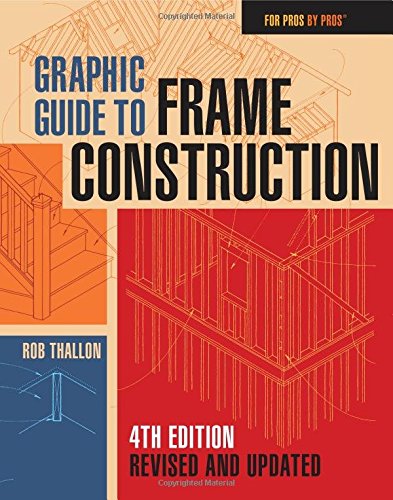 Show Reddit reviews
Show Reddit reviews53. Renovation 5th Edition: Completely Revised and Updated
Sentiment score: 0
Number of reviews: 1
 Show Reddit reviews
Show Reddit reviews54. The Complete Book Of Woodworking
Sentiment score: 1
Number of reviews: 1
Great product!
 Show Reddit reviews
Show Reddit reviews55. Finish Carpentry: Efficient Techniques for Custom Interiors
Sentiment score: 0
Number of reviews: 1
Used Book in Good Condition
 Show Reddit reviews
Show Reddit reviews56. Shark Corp 10-2440 Fine Cut Saw
Sentiment score: 1
Number of reviews: 1
This flexible fine-cut saw is great for cabinet work, flush cutting (dowels)It can be used for flexed or flush cutting and features the pull-to-cut method for faster, cleaner, easier, and safer sawingThe pull-saw teeth have three cutting edges that are precision diamond-cut, not merely stamp-cutFor ...
 Show Reddit reviews
Show Reddit reviews57. Johnson Level & Tool 405 Stair Gauge 2-Pack
Sentiment score: 0
Number of reviews: 1
Stair gauge clamps ideal with rafter and carpenter squaresSpeed up any measuring jobBrass PlatedInclude knurled screwsPack of 2 contractor quality clamps
 Show Reddit reviews
Show Reddit reviews58. Stanley 33-425 25-Foot by 1-Inch Measuring Tape
Sentiment score: 0
Number of reviews: 1
16-Inch and 19.2-Inch stud center markings7-Foot standout25-Foot length1-Inch width
 Show Reddit reviews
Show Reddit reviews59. General Tools 843/1 Pencil Compass and Scriber
Sentiment score: 1
Number of reviews: 1
COMPASS & SCRIBER- designed for marking contours, drawing circles or arcsADJUSTABLE- positive wing nut adjustment up to 8 inchesRIGID- full-length hardened steel pin in metal frame for greater rigidity and accurate scribingDURABLE- this pencil compass and scriber is constructed of brass plated steel...
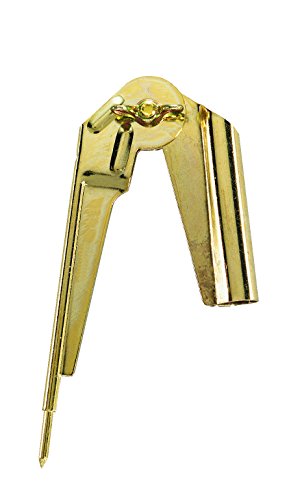 Show Reddit reviews
Show Reddit reviews60. General Tools 77 Ball Bearing Automatic Center Punch
Sentiment score: 0
Number of reviews: 1
This product is high quality productManufactured in ChinaThis product is easy to useA life saving tool when trapped in an automobileShatters side windows for ease of escape even under waterPreferred tool to free victims trapped in automobiles by: paramedics, police, and fire rescueBody diameter 5/8"...
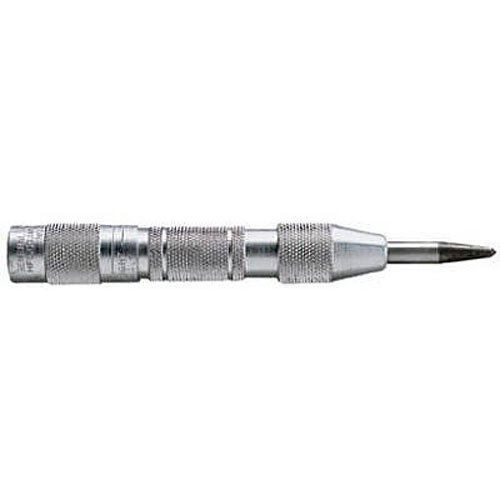 Show Reddit reviews
Show Reddit reviews
Off the top, I have to say that I really don't like the tone of your post, it shows a lack of respect and ignorance for how much work and capital the owner of a company has to put in. Being good at business doesn't mean that you're the best technical carpenter or even a carpenter at all. It's like the typical restaurant feud where the kitchen staff doesn't appreciate what the wait staff do and visa-versa, while not realizing that one would not exist without the other.
Sales and dealing with clients is much more difficult than most give credit for. Knowing how to price things to make money, being able to work with all different types of personalities and keeping a level head under very stressful situations are skills we don't learn in the field. Not to mention the financial risk on every project, accounting, advertising, driving all over hells half acre to price jobs you might not get...etc.
All this to say, take a little time to research and learn what goes into the front end of a business that is successful. A few books you might want to check out:
1)Markup and Profit: A Contractors Guide by Michael Stone
2) The 7 Habits of Highly Effective People: Powerful Lessons in Personal Change by Stephen R. Covey
3) Profit First: Transform Your Business from a Cash-Eating Monster to a Money-Making Machine by Mike Michalowicz
4) Running a Successful Construction Company by David Gerstel
5) How to Win Friends & Influence People by Dale Carnegie
Most important though is to find an accountant and learn what goes into accounting. Of all the things that I've seen take down really good carpenters going out on their own, accounting is #1. They don't put money away to pay taxes end up in a robbing peter to pay paul situation, or just don't know what their overhead is to charge appropriately to cover it as well as make a profit and cover their own wage.
As far as how much capital to start out with, I'd say 6 months salary. It's always a good idea to have a least 6 months worth of operating expenses as a capital reserve even while operating. It makes you less likely to be put in situations where you HAVE to work and end up taking jobs you shouldn't.
I'm fairly new to the trade. Been in for about a year now. The way I got in was by looking on craigslist for carpenter apprentices. A local contractor picked me up and I've been on the job learning since. It's very rewarding, expecially when you finish a project or big job, and it is very difficult at times too. Moving stacks of lumber around and working outside on roofs when it's over 100 out isn't fun. I would say with my company we dabble in many things from framing, finish work, remodels, and custom projects. I've heard of guys on this sub who had been working on prefab stuff in shops hoping to get out and work on real homes, but there are plenty of guys who love that stuff because being inside with ac is always nice. I've heard big companies that build track homes are pretty fast paced and a lot of people leave because the pressure and stress amd repetitivness. Also, attention to detail and listening to directions are very important no matter the job. Other than that tools are #1. If you don't have the tools you're useless. Not all jobs do you provide your own tools, but if you're not with some big company you will most likely provide that on your own. You can find some pretty good lists online of general tools you should have. Skilsaw (Mag77), bags, sawsall, grinder, impact, drill, holehawg, levels, nailers, hoses and compressor are some pretty basic things you should have and have experience with. Look up "Larry Haun" when you have a chance. He has good material that you can read/watch through. Other than that listen to advice from the OGs on the job and be confident in your measurements before you cut. As long as you're willing to learn there will be someone willing to teach you. Good luck out there :)
Hey, I'm in a similar boat as you, and just started carving as well. Also more into treen and not figures at the moment.
That set looks OK but I would rather go for a couple of knives, one straight and one bent. Look at this guy's page for pointers http://davidffisher.com/frequently_asked_questions (he is an amazing carver btw look at his gallery). Mora knives are popular. You might want a small carving axe as well. I bought a cheap ($10) hatchet and ground a larger bevel on one side. Also this book is excellent https://www.amazon.com/Swedish-Carving-Techniques-Fine-Woodworking/dp/1627106731/ref=tmm_pap_swatch_0?_encoding=UTF8&qid=&sr= . Have fun! Happy to answer any other questions I can.
If the idea is to learn to use hand tools, then the basics are chisels, saws, and planes.
http://www.leevalley.com/US/Wood/page.aspx?p=67707&cat=1,41504
Those are a good set of chisels at a reasonable price. I'd recommend the set of 4 (1/4" - 1").
http://www.amazon.com/Shark-Corp-10-2440-Fine-Cut/dp/B0000224U3/ref=sr_1_2?s=hi&ie=UTF8&qid=1413255552&sr=1-2&keywords=ryoba+saw
Next I'd get a ryoba saw. One side has teeth for ripping, and one for crosscutting, so you get some versatility out of one tool. You could also look into dovetail saws.
http://www.amazon.com/s/ref=nb_sb_noss_1?url=search-alias%3Dtools&field-keywords=low+angle+block+plane&rh=n%3A228013%2Ck%3Alow+angle+block+plane
Planes come in massive variety. I'd start with a low angle block plane. The more expensive planes come ready to use right out of the box. The cheaper ones can take a bit of work to turn into a good tool. I have one of those cheaper stanleys, and I had to spend about 4 hours sanding the bottom to get it flat.
For a plane specifically for joinery, I'd also look at a rabbet plane.
Hope all that helps. If hand tools aren't really her thing, then you're looking at something more like table saws and routers. Good luck.
Haven't read it but the Taunton press is a pretty legit publisher
https://www.amazon.com/Building-Shed-Tauntons-Build-Like/dp/1561589667
YouTube can bring it all together on how to execute operations and selecting and using tools.
Also building codes and construction techniques vary widely depending on where you live and with good reason. Climate, weather, seismic activity etc all determine how a structure needs to be engineered to be safe and long-standing.
Graphic Guide to Frame Construction.
I love this book. It has great tips, structures, methods, and detailed pictures to show how to accomplish what you're looking for. Also mentions code requirements. In the link above, it goes to the third edition, which is what I own.
I haven't actually used it that much on jobs because I've gone union and work mostly commercial jobs, but I've used it on some other projects for straight framing and it was great.
Here is a link for the fourth edition.
If you want to start making your own furniture, and have an interest in carpentry, you should get a book called The Complete Book of Woodworking.
The book will teach you a lot! and it has a couple of furniture projects you can complete, including a bookshelf. I got it when I was first starting and it helps a lot.
if you live in the USA is the best guide I have found to learn from zero. https://www.amazon.com/gp/product/1600852467/ref=oh_aui_detailpage_o03_s00?ie=UTF8&psc=1
also, any Books or Videos from Larry Haun, that guys is fantastic.
I really recommend the video series of how to frame a house. is 3 parts of one hour each but you will watch a master working and taking the time to describe what you as new, need to learn.
http://www.amazon.com/Custom-Leathercraft-Professional-Carpenters-18-Pocket/dp/B00004YZN7/ref=sr_1_2?ie=UTF8&qid=1454183939&sr=8-2&keywords=clc+tool+belt
I used these for years. Fairly inexpensive and good quality. I do allot of work in the rain so I try to stay away from leather bags.
Since Larry Haun has already been recommended, a couple of my other favourites: Finish Carpentry by Gary Katz, and Rough Framing Carpentry by Mark Currie.
https://www.amazon.com/Renovation-5th-Completely-Revised-Updated/dp/1631869590/ref=sr_1_3?keywords=renovation&qid=1563980987&s=gateway&sr=8-3
You can use a framing square with stair gauges.
Illustrated Cabinetmaking details quite a bit of furniture construction. It touches on joinery, the where and why. It covers beds, chests, kitchen cabinets (wall hanging and bases) and many more. The plans are not detailed. Most are simply a blown-up or cutaway drawing of the piece itself but the author included source information.
General Tools 77 Ball Bearing Automatic Center Punch https://www.amazon.com/dp/B00004T7RD/ref=cm_sw_r_cp_api_CgGYBbFTSZAGC
A saw, drill with bits, measuring tape.
These are some of the tools I have. They are, admittedly, more aggressive than what you might need for your first project but it should give you an idea of were to start from.